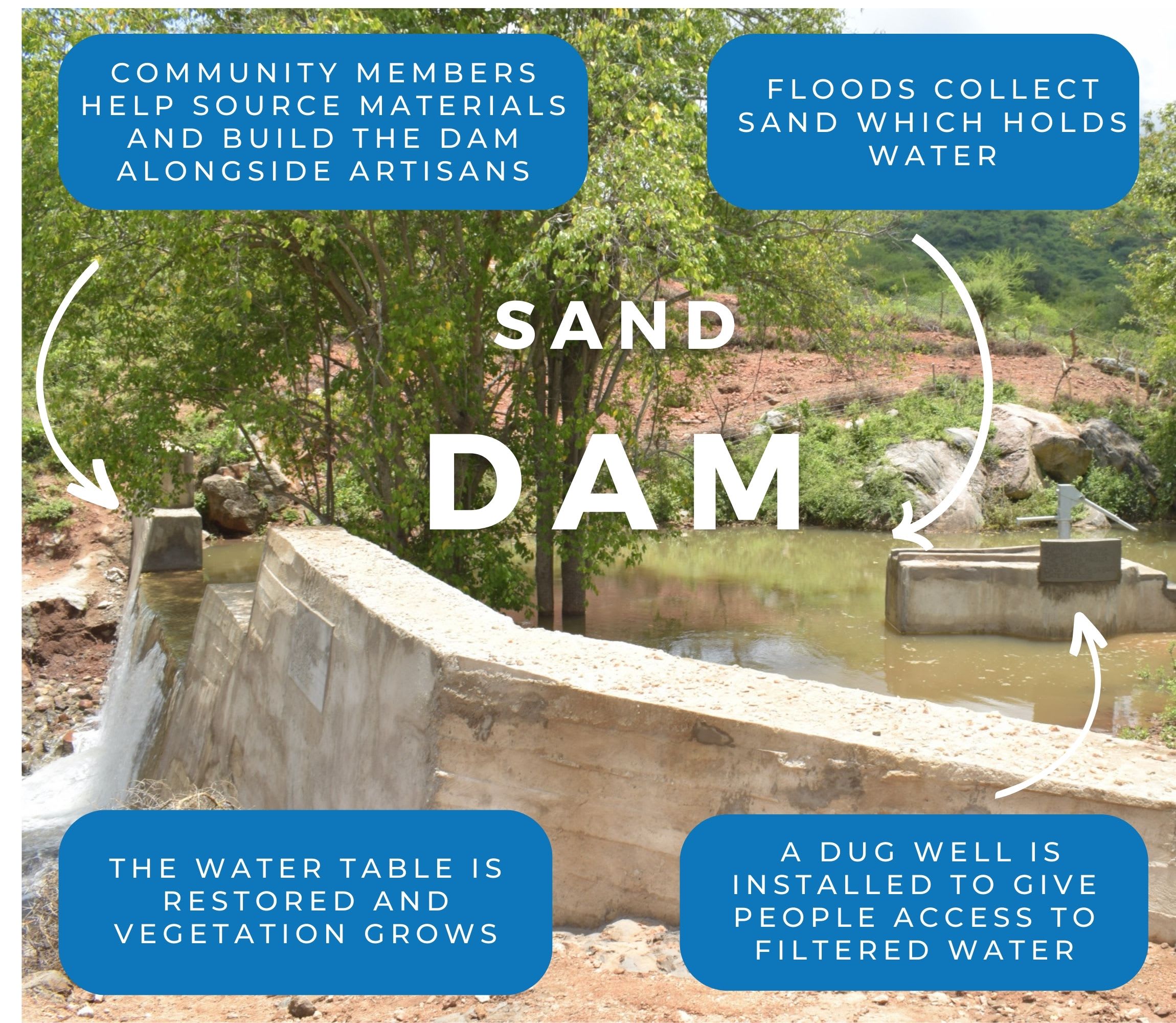Mung'alu Community is found in a peaceful, rural area with hilly terrain made of many steep slopes. The area has significant tree coverage made of both indigenous and exotic species. A majority of people live in houses made of bricks roofed with iron sheets.
Our main entry point into the Kathungutu Community has been the Mung'alu Self-Help Group. It is an all women's group comprised of households that are working together to address water and food scarcity in their region. These members will be our hands and feet in both constructing water projects and spreading the message of good hygiene and sanitation to everyone in this area.
On an average day, the women in this group wake up at 6:00 am to fetch water and prepare breakfast before their children go to school and their husbands go to work on the family farm. The main water source for this community is a shallow well and sand dam which they were supported in implementing last year together with our team. However, many people here still live far from this new water point or the line to get water is too long. So they turn to other, often unsafe places to get water.
"I am thankful to our donors for having supported our community with a water project. There are still water challenges in our community because the sole water facility is not able to meet the high demand for water from the existing population. Sometimes I have been forced to seek alternative water sources when I am not able to get water from the facility," said Mdinda Musyoka, a 71-year-old farmer who is a member of the self-help group.
That is why we are committed to working with this women's group for multiple years to complete water points that will ensure everyone here has equal access to safe and reliable water.
What We Can Do:
Sand Dam
After the community picked the ideal spot, our technical team went in and proved the viability by finding a good foundation of bedrock. Now, our engineers are busy drawing up the blueprints.
We are unified with this community to address the water shortage. As more sand dams are built, the environment will continue to transform. As the sand dams mature and build up more sand, the water tables will rise. Along with this sand dam, a hand-dug well will be installed to give community members an easy, safe way to access that water.
Building this sand dam along with the well in this community will help bring clean water closer to hundreds of people living here.
Training
These community members currently do their best to practice good hygiene and sanitation, but their severe lack of water has been a big hindrance to reaching their fullest potential.
We will hold hygiene and sanitation training sessions with the Mung'alu Self-Help Group and other community members to teach about important hygiene practices and daily habits to establish at the personal, household, and community level. This training will help to ensure that participants have the knowledge they need to make the most out of their new water point as soon as the water is flowing.
One of the most important topics we plan to cover is the handling, storage, and treatment of water. Having a clean water source will be extremely helpful, but it is useless if water gets contaminated by the time it is consumed. We will also emphasize the importance of handwashing.
We and the community strongly believe that all of these components will work together to improve living standards here, which will help to unlock the potential for these community members to live better, healthier lives.
We typically work with self-help groups for 3 to 5 years on multiple water projects. We will conduct follow-up visits and refresher trainings during this period and remain in contact with the group after all of the projects are completed to support their efforts to improve sanitation and hygiene.

 Sand Dam
Sand Dam
 Rehabilitation Project
Rehabilitation Project
































